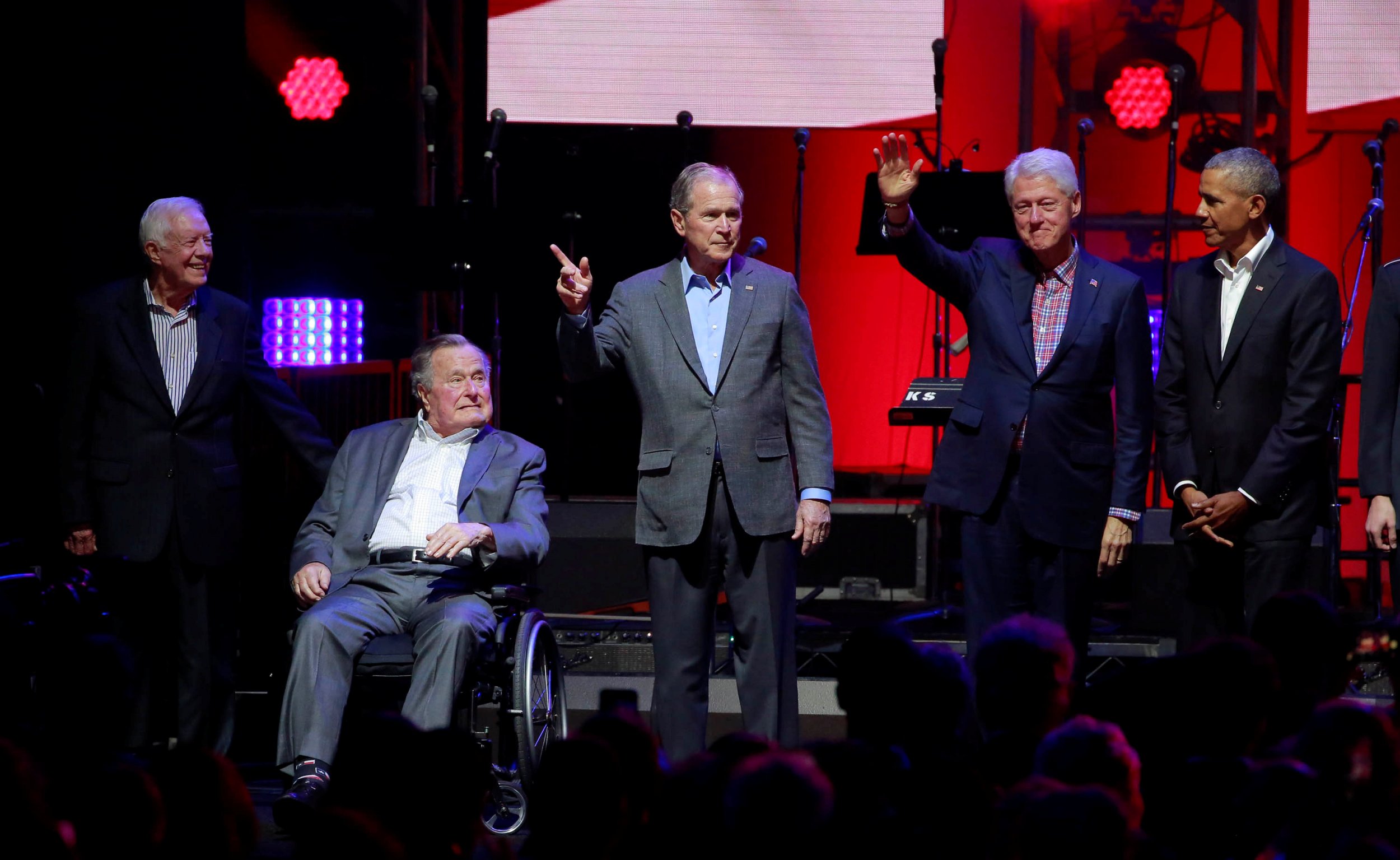
While virtually all of President Donald Trump's predecessors have criticized his handling of nuclear aspirant North Korea, Jimmy Carter has come to the administration's defense, accusing the media of being hardest on Trump and offering to help him approach Pyongyang.
"The media have been harder on Trump than any other president certainly that I've known about," Carter told The New York Times in an interview published over the weekend. "I think they feel free to claim that Trump is mentally deranged and everything else without hesitation."
Carter, a Democrat, lost the presidency after one term in 1981 but put himself forward to negotiate a short-lived deal with North Korea during the postwar height of tensions in 1994. Carter arrived in Pyongyang despite then-President Bill Clinton objecting to his dialogue with the regime. North Korea restrained itself from its nuclear program for only four years following Carter's visit and has since returned to its controversial project of developing an intercontinental ballistic nuclear weapon.
Carter says he is more than willing to step back into diplomacy with North Korea.
"I would go, yes," he told the Times. "I don't know what they'll do. Because they want to save their regime. And we greatly overestimate China's influence on North Korea. Particularly to Kim Jong Un," Carter said, referring to the country's young leader, who took the reins when his father Kim Jong Il died in 2011. "He's never, so far as I know, been to China. And they have no relationship. Kim Jong Il did go to China and was very close to them."
Carter said Kim Jong Il's successor looked more "unpredictable" than his father. The former president said he had already offered his services to Trump's national security adviser H.R. McMaster.
"I told him that I was available if they ever need me," he added.
When asked about Trump's reputation on the world stage, Carter said: "Well, he might be escalating it, but I think that precedes Trump," he said. "The United States has been the dominant character in the whole world, and now we're not anymore. And we're not going to be. Russia's coming back and India and China are coming forward."
Carter even spoke supportively of Trump's decision to send son-in-law Jared Kushner, a confidante with no prior experience of diplomacy, to lead his delegation to the Israeli-Palestinian peace process.
"I've seen in the Arab world, including the Palestinian world, the high esteem that they pay to a member of one's own family," Carter explained.
Although he said all 22 members of the Carter family voted for Barack Obama, he took a swipe at the latter's Middle East policy: "He made some very wonderful statements, in my opinion, when he first got in office, and then he reneged on that."
Trump's rival, Hillary Clinton, also earned some of Carter's ire, as he played down the extent that the alleged Russian hacking of her party on the eve of the election changed the outcome.
"I don't think there's any evidence that what the Russians did changed enough votes, or any votes," Carter noted, though admitting that his wife, Rosalynn, holds the opposite view from him. Carter, who said he backed Bernie Sanders ahead of Hillary Clinton to take on Trump as the Democratic Party's nominee, has criticized Trump strongly in the past, telling the Democratic National Convention last year that Trump "seems to reject the most important moral and ethical principles on which our nation was founded."
Speaking about football players kneeling during the U.S. national anthem in protest of racial injustice, Carter also sided with Trump but with less inflammatory language.
"I think they ought to find a different way to object, to demonstrate. I would rather see all the players stand during the American anthem," he said. Asked if Trump was worsening racial division, Carter said: "Yes, I think he is exacerbating it. But maybe not deliberately."
Uncommon Knowledge
Newsweek is committed to challenging conventional wisdom and finding connections in the search for common ground.
Newsweek is committed to challenging conventional wisdom and finding connections in the search for common ground.
About the writer
I am a Staff Writer for Newsweek's international desk. I report on current events in Russia, the former Soviet Union ... Read more
To read how Newsweek uses AI as a newsroom tool, Click here.








